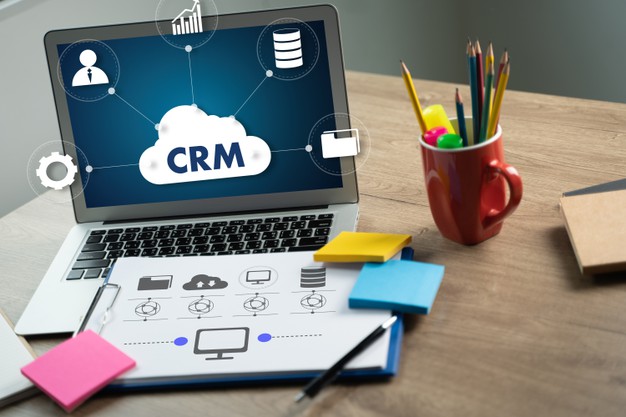
Investing excites businesses, but ROI matters by the end of the day. For every dollar spent, you expect the ROI to improve. The same holds true when you invest in business solutions such as CRM.
This is why businesses, irrespective of size, industry, and target audience want a CRM solution that can help close more deals and manage relationships with customers. But, no two CRM solutions are the same.
Your business has unique needs and perhaps your existing system is not helping you. Or probably you are switching from excel. With all the factors, finding the CRM software that works for you is challenging.
Here’s a cheat sheet that lists all the factors to choose sales CRM. The list helps you to knock off CRMs that don’t fit your needs and help you streamline the CRM hunt.
Factors to Consider Before Choosing Sales CRM
1. Easy-to-set up and Intuitive
Do you need weeks to adapt and get your CRM running? Or would you need an external consultant to help set up your CRM system? Give it a pass.
Figuring out how CRM systems work is not the best thing to go. Many managers pick a CRM that is not intuitive, ending up with poor adoption. Around 55% representatives prefer a solution that Is user-friendly.
Key things to look for:
- Does the solution capture leads from multiple channels such as email?
- Do you need to manually enter leads?
- How often do you need support?
- If you are able to adapt to the sales CRM in a few days, you can go ahead with the solution.
2. One Solution for Everything
What you want: A tool to capture leads, send emails, manage calls, create reports and track customer journeys.
What you don’t want: Switching between emails, excel files, calendar and phone while interacting with prospects.
Consider a CRM solution that gives you everything: built-in phone, reporting and lead scoring. Find if the solution work for specific use cases – sending bulk emails to run campaigns, and placing calls from the CRM solution. Likewise, you can explore every aspect of the CRM solution.
3. Managing Deals
The key differentiator between Excel and sales CRM is that the ability to track the pipeline. You can list deals in Excel, but you can’t track the conversations you have had, people you have contacted, and the number of deals you expect to close this month. With CRM, you can get all this done.
One screen will give you complete details like how many new deals you’ve got, who is up for negotiation, how many you have won or lost in a specific period. CRM software presents this information in a pipeline – so you can view deals and capture the entire sales pipeline.
4. Quick and Precisely Reports
Reports play a critical role in every business. You can analyse and forecast sales better, every representative will know what they have done right and where they can be better.
CRM solution allows you to utilize a set of templates and create custom reports. Dashboards give you clear insight into what is happening and enable you to make data-driven decisions.
5. Analyse Customer Behaviour
Data is the new metric; businesses start to recognize that the digital transformation left behind the trail of behavior data. Sales CRMs can get you granular insight into the data.
If someone views the website, looks at the features, and fills out the webpage, it automatically gets listed as a new lead in the CRM. In addition, you will find their social profiles added to their profile in the CRM application.
6. Streamline Repetitive Tasks
Most representatives spend their time on mundane tasks such as entering data manually into the CRM solution. The following are some key features you should look for in sales CRM:
- Bulk emailing
- Call logging
- Workflows –Triggering actions based on the set-up events
- Assigning leads to sales representatives by territory
7. CRM Customization
Customization is the crucial factor; pay attention to details and understand to what extent you can customize the CRM software. The solution should allow you to modify CRM features in line with the business.
8. Integration with Apps
Integration means bringing multiple tools under one roof, so you can easily collaborate with each application without too much effort. With internal-app integrations, the information can seamlessly flow between the systems, and the possibilities of data sharing are endless.
9. Mobile CRM
Around 81% of sales representatives access CRM solutions using mobile devices. Find whether sales CRM features mobile apps and check if the mobile versions are better than the desktop counterparts.
10. Support
Although the sales CRM has all the features you are looking for, support is something most organizations will overlook. Without proper support, you have to face obstacles while using the software.
Do they go the extra mile to sort out the queries? What are the various channels do they support? Is it only email or chat? And which channels are free and which are paid?
11. Price Matters
Organizations spend an estimated amount of $150/user/month on CRM solutions. In addition to this, businesses also end up spending on other tools for lead scoring, marketing automation, and behavior tracking, because the CRM software doesn’t come with all these functionalities.
While choosing the CRM solution, let the solution do all the heavy lifting and you don’t want to spend an extra amount in the process. Balancing between crucial features and pricing is hard.
So, you have all that. Consider these 11 factors to evaluate the sales CRM software solution that best fits your needs.
